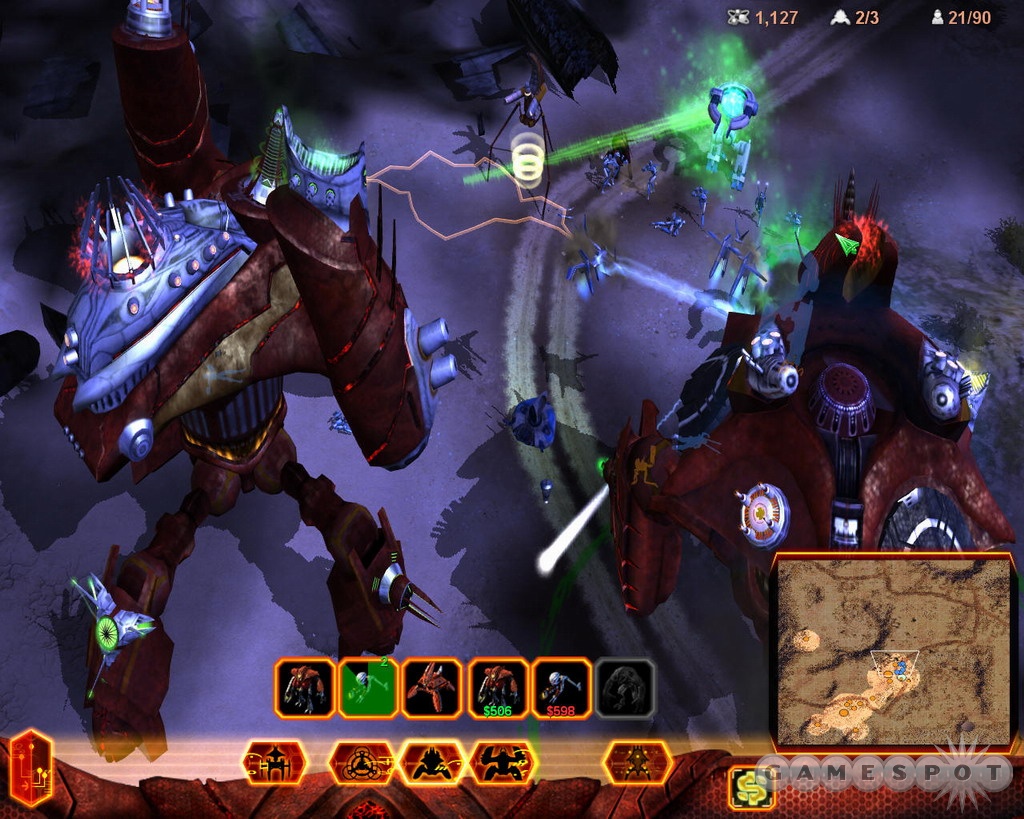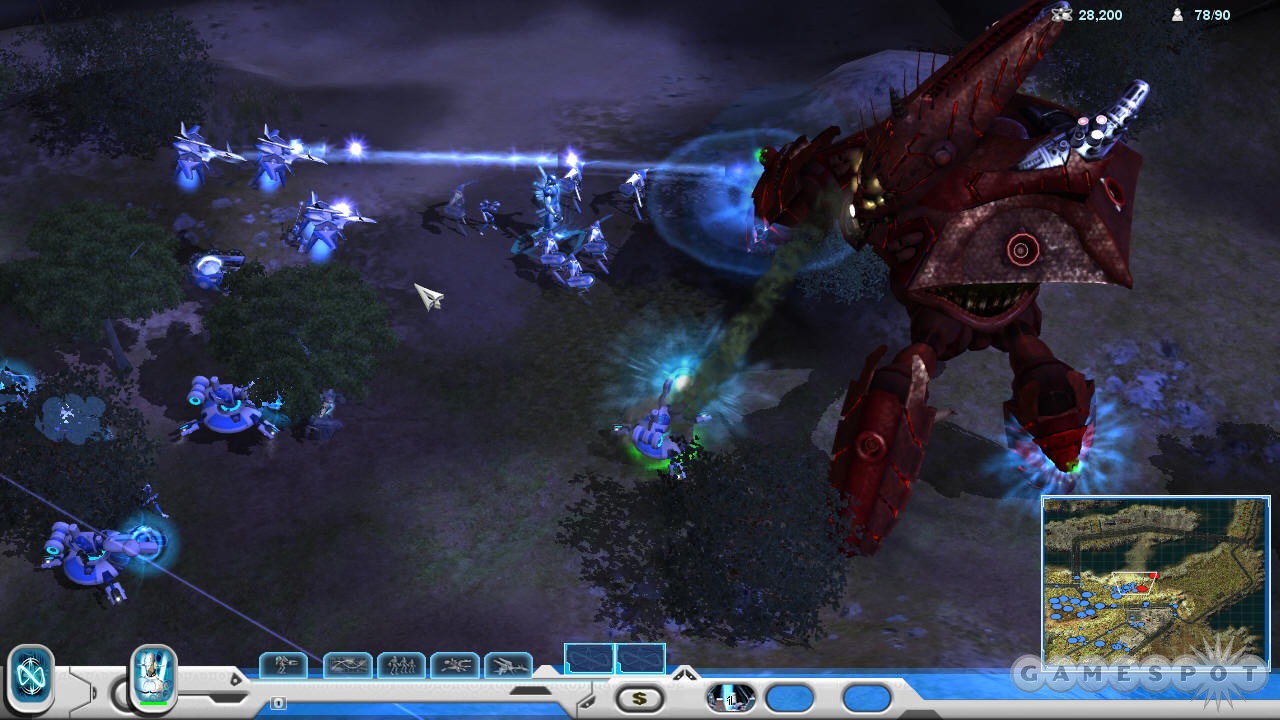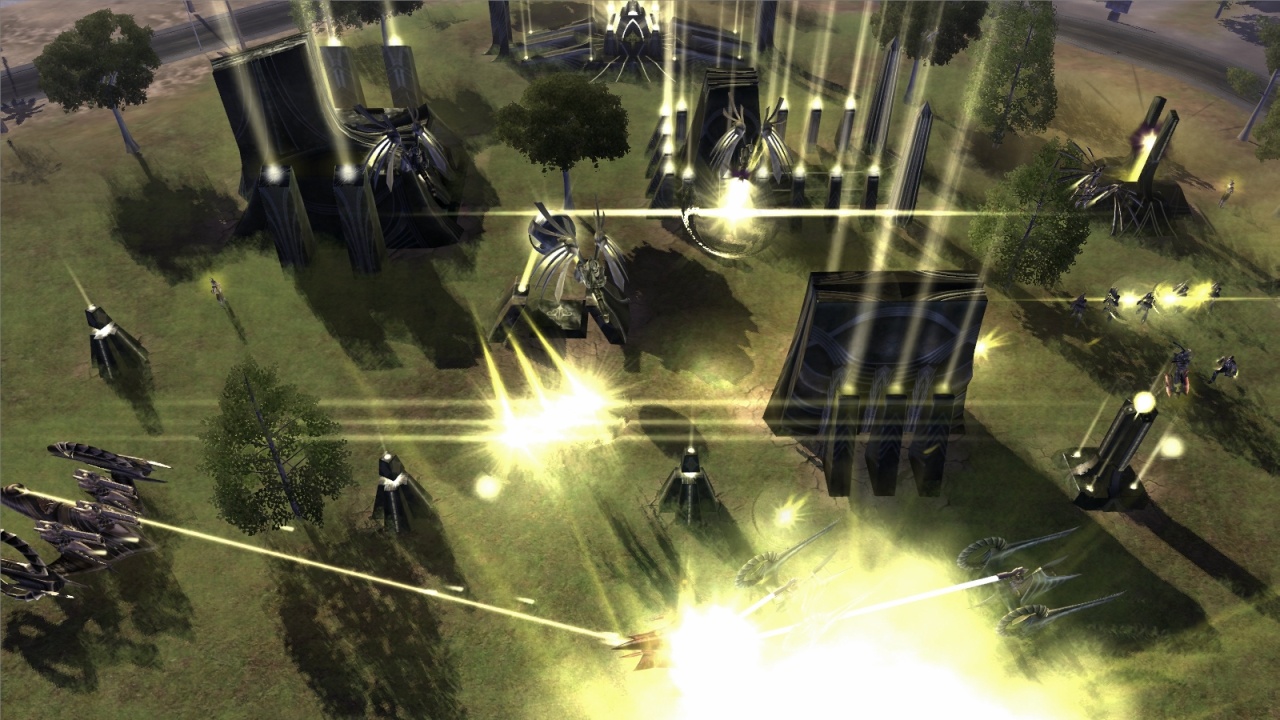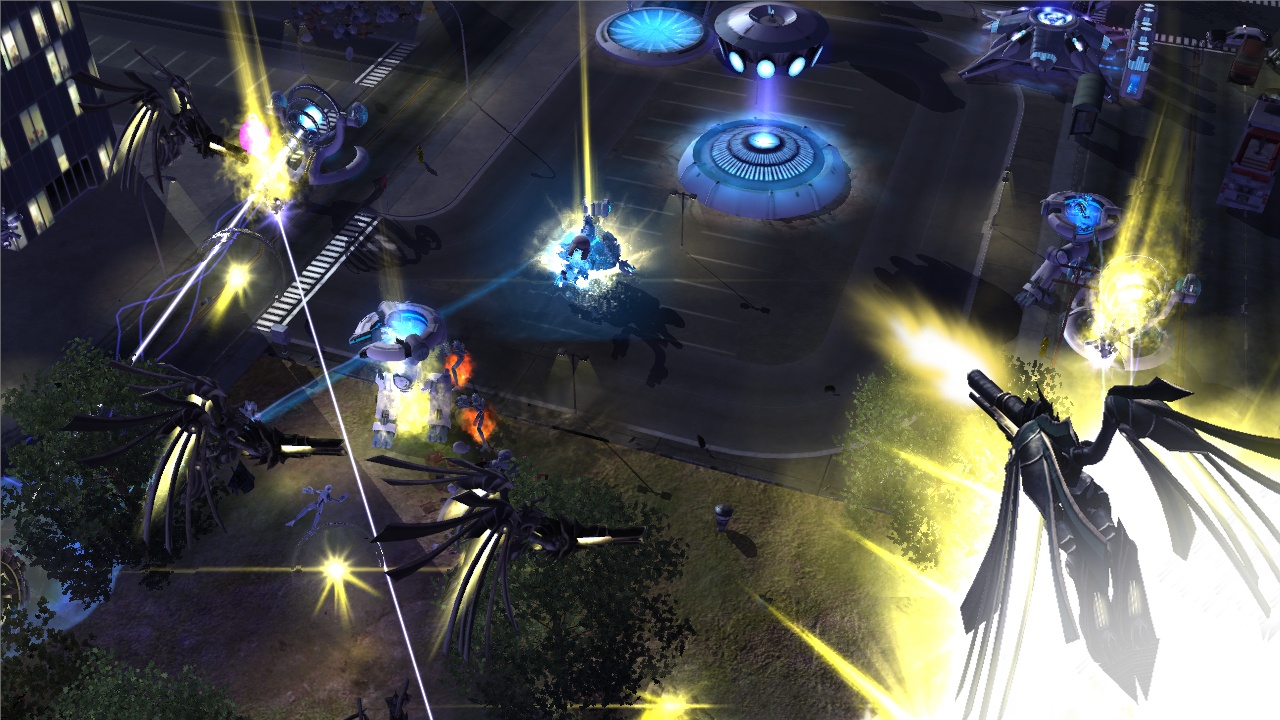Universe at War: Earth Assault Designer Diary #5 - Alien Sound and Music Design
Noted sound designer Frank Klepacki of Command & Conquer fame discusses the challenges of creating music and sound effects for alien races.
You may never have heard Frank Klepacki's name, but you almost certainly have heard his music. Klepacki has written musical sequences for the Command & Conquer real-time strategy games, including the memorable song "Hell March." Now Klepacki and his coworkers at Petroglyph are busy putting the finishing touches on Universe at War: Earth Assault, an RTS game in which you'll play as one of three alien factions battling it out on Earth. The familiar RTS concepts of resource gathering, economy building, and raising armies to crush your opponent are still here, but they're also vastly different thanks to the three unique races. With the game shipping next month, Klepacki described to us the process of creating audio for a brand-new franchise.

Preparing the Audio Assault
By Frank Klepacki
Audio Director, Petroglyph
When Universe at War was first discussed in concept prior to development, the opportunity to create something new again, not based on any other existing intellectual property, greatly appealed to me. After several meetings, keeping up with design changes, and seeing the first test levels started, once again, as a one-man audio department, I hit the trenches! Fans have long waited for the day that I would return to my "roots" and give them more of my adrenaline-pumping soundtrack style again, and Universe at War was the perfect game to do this with.
I began by taking into account what songs were identified as fan favorites in my past related work (particularly in the original Command & Conquer series), and allowed that influence to shine through in the material I would compose for this game. However, I wanted to assign a specific set of themes and music styles to each of the three factions and give them their own unique personality, since diversity in playing style is what the game is about.
For the Hierarchy--our evil alien race--I went with a more heavy-metal rock influence, to go along with how they stomp all over everything on the map with their massive walker units. Novus--our high-tech, hit-and-run faction--featured more industrial electronica to go along with their futuristic robotic feel. For our third faction, the Masari--our ancient star-faring side--I provided an epic orchestral feel, with worldly influences to reflect their godlike nature and questionable links to our past. One Masari track in particular, "Divine Intervention," would become the central theme to the whole game.
We put in two music modes to choose between. The default mode is interactive, where the music dynamically changes between ambient and battle themes as the situations happen. Alternatively, a shuffle "jukebox mode" can be selected in the audio options menu, so that you can hear all the tracks in the game play randomly, one after another, in their entirety.
Another great thing about doing a game from scratch is the creativity in sound design; it's just as much fun as scoring new music. You get to set the style and tone of the sounds of the races and all their units. A healthy combination of field recording, heavy library manipulation, voice, and foley work went into the creation of all the sounds in the game.

I wanted the sound effects for Hierarchy to sound unnatural. Almost every sound has an effect or combination of sounds to create their arsenal of mangled noises. Even the explosions are strange. It was decided that the Hierarchy units needed to "sound" alien. With the exception of the main hero characters, I took it upon myself to voice various grunts, growls, mannerisms, and strange vocalizations for the different battle units, and made up my own language for them. For the Hierarchy's different walkers, a combination of heavy cranes recorded with overdriven impacts rounded their stomping sounds. I'm particularly fond of their menacing machinelike breathing sound.
The Novus side is about high-tech and robotic sounds, but also makes use of phase effects on quite a bit of their sounds to stylize it and make it special to their faction and technology. Lots of mechanical movement, electricity, and metal sounds are prominent in this race.
Alien Translation
The Masari sound design was made from using a lot of natural sounds from weather and elements, occasionally magical, but not too stereotypical. They are drawing on power of the past, so that direction made the most sense. Things sound as if they have more weight, thunder, heavy bass rumblings, vortex gusts, and the like. 
The sound implementation was the most challenging curve to overcome in that the whole game engine had significant changes and additions to the technology that made it impossible to keep things simple on the audio front. The audio had to be placed throughout several different areas in order to function properly with everything from specific effects, abilities, user interface controls, projectile weapons, and the tactical dynamics. Because this game truly has three distinct and different factions and playing styles, the audio had to be implemented in special ways to accommodate it. Let it be known that in this type of situation, audio programming support is a must.
With all-new and totally different character types in this game, casting the right parts was a challenge. We really needed to hit the mark on the featured story characters to really sell the presence of the heroes in the game and how they factor in the grand scope of the game.
Before final actors are recorded, a necessity of the initial process is recording scratch dialogue--temporary speech to convey the flow of missions and unit responses--until we consider the lines written to be final. It's insanely time-consuming and ever-changing. It keeps getting rewritten, characters' names change, lines get cut, new lines get added, and it can be overwhelming at times.
After locking down the script and defining direction for the characters' personalities, Black Powder Media was contracted to help cast, record, and edit all the final voice over for us. This way it would be easy enough to replace all the scratch dialogue with the final speech, and allow me to work on polish, bug-fixing, and any other last-minute audio additions to the game. Oh, and I needed to help present the game at E3, too.
We came up with creative ideas for how the different factions' voices would be processed. For the Hierarchy, since the majority of their units had their own grunting language, the heroes needed to speak English for the sake of the story campaign and for general battle use for the player. So I came up with the idea of making them sound as if they are telepathically speaking to you, with a back-masking effect on their voices to sound unnatural, as if the words are being channeled straight to your brain rather than being spoken.

Novus was an easy direction since they are all sentient machines. A variety of creative robotic processes among all the units were done; however, one special unit that needed something extra was Mirabel and her "mech" named Viktor. To make this unit special, and to enhance their camaraderie, it was decided Viktor would speak his own robotic language, so I created yet another language just for him. It made for a unique dynamic between the two characters, and sets them apart from the rest of the heroes since when you command them they sometimes speak to each other.
Masari needed to have a good amount of noble- and strong-sounding voices without being too typical or medieval. So the natural strength of the actors' voices was heavily relied upon. A few of the characters were unique, such as the Masari communicator, a young girl's tone of voice with a sparkling reverb added to imply their method of transmission.
Universe at War was certainly the most extensive project I've ever worked on. All the sound effects, music score, scratch dialogue acting, recording, editing, creating alien languages, and unique processing made this project a constant on-your-toes experience for me. There was truly never a dull moment.
Got a news tip or want to contact us directly? Email news@gamespot.com
Join the conversation